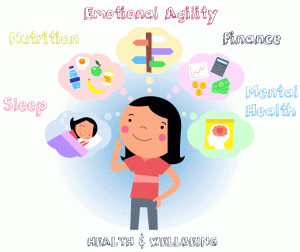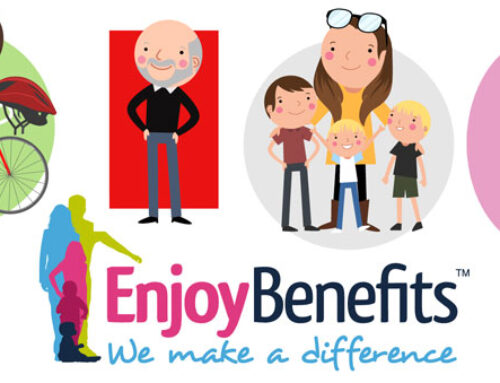Adults should ideally have at least seven hours of sleep a night, but many find this difficult to achieve. Anxiety, wakeful children, phone scrolling, and box set addiction can all have disastrous effects on our ability to get enough rest and primary insomnia caused by poor sleep habits now affects up to a third of the UK population. The resulting sleep deprivation has a negative effect not only on the individual but also on workplace productivity.
Insomnia is terrible for business, so as an employer, you have a vested interest in the quality of sleep your employees get.
The benefits of a good night’s sleep
While you are asleep, your body and brain use the period of sensory and cognitive downtime to optimise functioning.
This includes:
- Flushing away waste products from the brain
- Cell repair and regeneration
- Reducing muscle stress as a state of deep relaxation is reached
- Working on the production of cytokines, antibodies, and cells to enable the immune system to fight infection
- Regulating hormone and blood glucose levels
Missing out on these benefits leaves the brain and body depleted and will soon affect the well-being of your employees.
How does insomnia affect work performance?
We may shrug off tiredness due to poor sleep and keep ourselves going with regular shots of sugar and caffeine. However, although we may not realise it, insomnia quickly affects our behaviour and thought processes.
![]()
Sleep is fundamental to emotional stability, and being deprived may make it difficult for your employees to cope with challenges at home and work. Emotional instability can create poor working relationships and a toxic atmosphere. Exhaustion and poor coping skills can also affect motivation and increase absenteeism.
Everything works at a sub-optimal level when we are exhausted. An inability to concentrate affects the speed at which we can work, reducing productivity and increasing the likelihood of errors.
Being unable to concentrate on a financial spreadsheet is one thing. The consequences of sleep deprivation could be more serious if your exhausted employee needs to drive or operate machinery.
The long-term effects of sleep deprivation
Tiredness is just a symptom of poor sleep. The damage caused to the body and mind by persistent sleep deprivation is far more profound.
Lack of sleep is linked to heart disease, high blood pressure, stroke and even dementia. A well-established link exists between lack of sleep and obesity, as sleep deprivation affects leptin production, a hormone that regulates appetite. Obesity is a risk factor for several conditions, including type 2 diabetes and arthritis.
Such severe conditions will significantly impact your employees, their families and your business.
Supporting your employees to sleep better with Enjoy Benefits
Poor sleep is endemic in today’s society due to the 24 nature of social media and entertainment channels. Many of your employees may not even realise how their mental and physical well-being could be boosted with better sleep.
 The Enjoy Benefits Health and Wellbeing programme provides your employees with easy-to-adopt practical tips and information on improving sleep. The programme also offers advice on other areas essential for optimum well-being: nutrition, mental health awareness, finances, and emotional agility.
The Enjoy Benefits Health and Wellbeing programme provides your employees with easy-to-adopt practical tips and information on improving sleep. The programme also offers advice on other areas essential for optimum well-being: nutrition, mental health awareness, finances, and emotional agility.
Promoting the importance of sleep by discussing it at work meetings and encouraging the use of the Health and Wellbeing programme could positively impact individual employees and the workplace.
Next steps
You can watch a video about our wellness benefits here. You can purchase this benefit as a standalone benefit in your portfolio or as an upgrade to your Employee Assistance Programme benefit.






